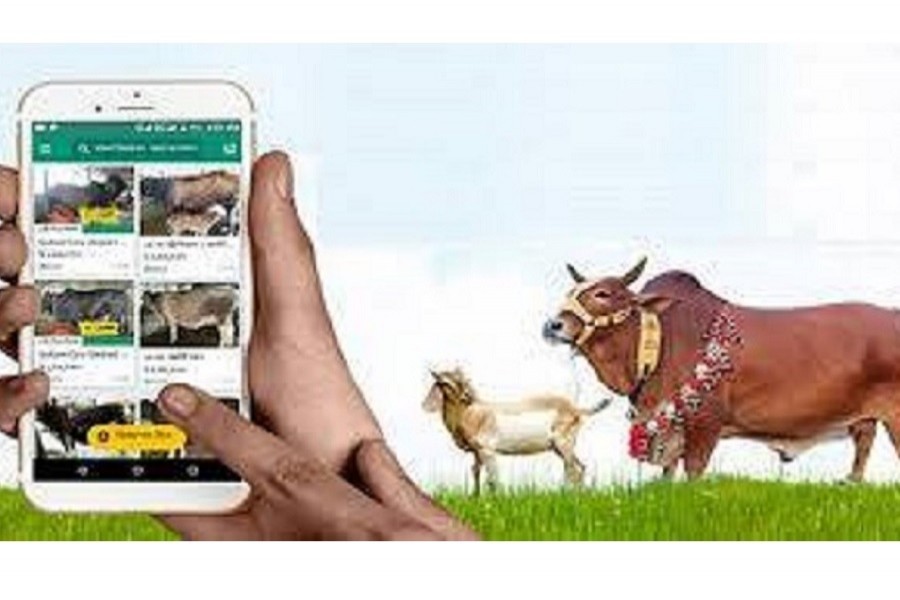The Dhaka North City Corporation (DNCC), has, as it did last year, launched the country's sole digital cattle market virtually on Sunday to facilitate pre-Eid-ul-Azha sale and purchase of sacrificial animals. Given the rather tough countrywide lockdown now in force amid the unprecedented surge in the pandemic with its Delta variant, the need for organising such an online marketing arrangement for sacrificial animals cannot be overemphasised. As such, those behind holding the event deserve commendation. In this connection, it is good to know that with the addition of 10 new marketing centres, the total number of such digital marketplaces now stands at 60. It is believed that such an increase in the number of digital bazaars will offer both the buyers and sellers of cattle online a wider choice to make. On this score, the DNCC authorities, as reported, expect to sell one hundred thousand sacrificial cattle heads online. In this manner, they hope to keep around half a million cattle shoppers away from physical marketplaces and thereby keep them safe from getting infected by the virus. While appreciating the idea, one needs also to realise the magnitude of the challenge they are facing. In truth, a larger section of the population looking to buy and sell the animals is not online savvy.
Before anything else, the organisers will have to work hard to win common people's trust regarding the online marketing practice. That is so because, buying of cattle before Eid-ul-Azha involves a considerable investment by the Eid-devotees. Given the reports of unfair practice by some unscrupulous online cattle sellers last year, the online traders as well as the authorities concerned need to be especially careful this time. It is hoped that from now on the escrow account that the Bangladesh Bank (BB) has created for the purpose would go a long way in preventing any dubious practice while carrying out transactions online relating to sale and purchase of cattle. For in this system, the cattle seller will get paid from the escrow account maintained with the BB only after the buyer confirms delivery of the purchased animal to her/his end.
Measures to fix such problems apart, there should also be incentives for both buyers and sellers of sacrificial animals to opt for online marketing. In this regard, the DNCC's decision to forgo the so-called 'hasil', a kind of rent charged by the cattle market management from buyers, is a positive step forward. Side by side with providing marketing support, it would also be necessary to extend some vital post-purchase service for cattle shoppers such as helping them slaughter their animals. It is learnt that under the auspices of the Dairy Farmers Association, a place has been assigned in the capital to slaughter 1,000 sacrificial animals. But considering the sheer number of cattle sold during the Eid-ul-Azha, more and larger abattoirs would be required to take care of the greater portion of the animals to be sacrificed in the city. This is also necessary to rid the city of the unhygienic practice of slaughtering sacrificial animals all over the place.
Finally, the digital cattle market now floated by the DNCC is just the beginning. So, the challenge before the authorities is to make this online marketing practice popular and more inclusive through a wider campaign among the people.


